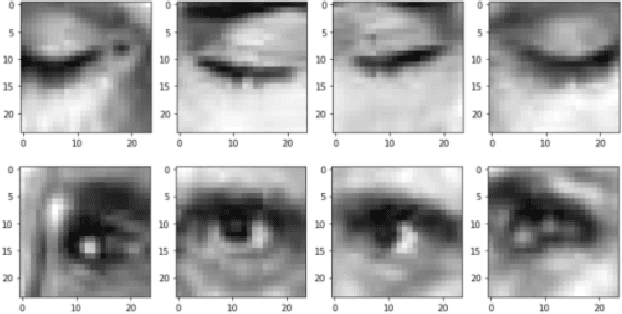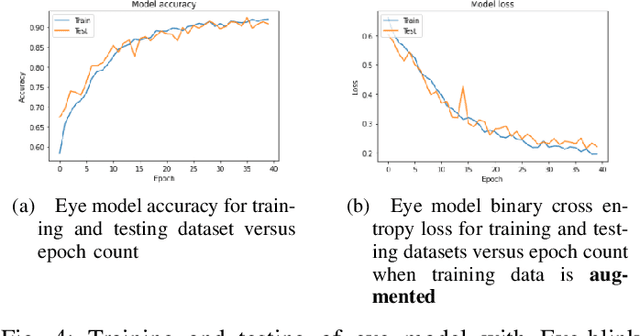Robust SleepNets
Paper and Code
Feb 24, 2021



State-of-the-art convolutional neural networks excel in machine learning tasks such as face recognition, and object classification but suffer significantly when adversarial attacks are present. It is crucial that machine critical systems, where machine learning models are deployed, utilize robust models to handle a wide range of variability in the real world and malicious actors that may use adversarial attacks. In this study, we investigate eye closedness detection to prevent vehicle accidents related to driver disengagements and driver drowsiness. Specifically, we focus on adversarial attacks in this application domain, but emphasize that the methodology can be applied to many other domains. We develop two models to detect eye closedness: first model on eye images and a second model on face images. We adversarially attack the models with Projected Gradient Descent, Fast Gradient Sign and DeepFool methods and report adversarial success rate. We also study the effect of training data augmentation. Finally, we adversarially train the same models on perturbed images and report the success rate for the defense against these attacks. We hope our study sets up the work to prevent potential vehicle accidents by capturing drivers' face images and alerting them in case driver's eyes are closed due to drowsiness.
 Add to Chrome
Add to Chrome Add to Firefox
Add to Firefox Add to Edge
Add to Edge